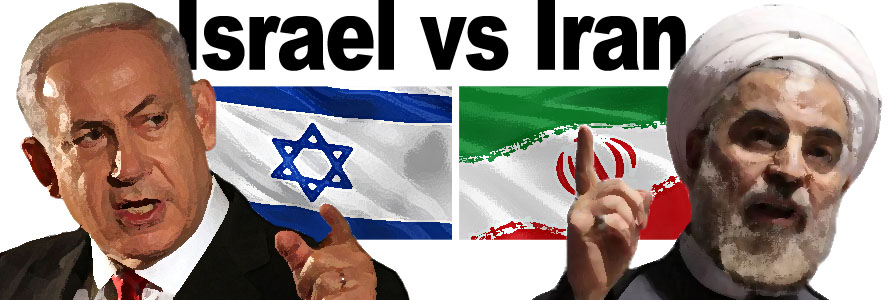Ordinarily, dialogue or even diplomatic accords are the best way to avoid armed conflict; but not in this case. It’s obvious that a new nuclear deal between the US and Iran, one that doesn’t fundamentally differ from its predecessor, could actually make war more likely rather than less.
Last week, IDF Chief of Staff Lt. Gen. Aviv Kochavi, who is normally measured and cautious in his speech, surprised a lot of people by sounding the alarm over the possibility of a war breaking out in the near future, whether on the northern front or southern front. His words highlighted the concern and even anxiety in Israel about the intentions of Iran, which dictates the actions of its proxies, Hezbollah in Lebanon and Hamas in Gaza.
The IDF chief emphasized, however, that our enemies are not interested in going to war. After all, Israel is not Saudi Arabia or the Kurds; it doesn’t have a reputation for turning the other cheek, but for responding immediately and doggedly, and sometimes disproportionately, to any provocation. Israel also has first-class operational and intelligence capabilities, which allow it to deter the Iranians and even foil many of their plans. And yet, the ongoing friction between Israel and Iran in Syria and Iraq could spill over into Lebanon and Gaza.
In Israel, there will always be those who blame the government and defense establishment for the rising tensions between Israel and Iran, but the truth is that Tehran and Jerusalem have been on a collision course for a long time now. The friction between the two countries stems from Iran’s fundamental enmity toward Israel, its stated devotion to destroying it, and its persistent efforts to establish a presence in Syria and Iraq, bringing those countries under its sphere of influence that stretches from Tehran to Beirut and Gaza.
Alongside the concern in Israel over Iran’s belligerence and brazenness, which could drag the region toward an all-out war, Israel must also closely monitor and prepare for the possibility of an improved nuclear deal between Tehran and Washington.
Ordinarily, dialogue or even diplomatic accords are the best way to avoid armed conflict; but not in this case. The dilemma facing Israel and the international community isn’t a war with Iran or making a deal with it. In this case, it’s obvious that a new deal, one that doesn’t differ from its predecessor in any fundamental way, could actually make war more likely rather than less.
The signs pointing to a new deal have accumulated in recent months. The Americans aren’t hiding their desire for dialogue with Iran, and have repeatedly opted for restraint to Iranian provocations. It appears the American administration has decided not just to disengage from the region, but also close the “Iran file” so that the US doesn’t find itself dragged back to a region it wants to leave in a few months’ time.
Under these circumstances, it’s hard to assume a new nuclear deal will significantly improve upon the original, the one that Trump angrily withdrew from over a year ago. Indeed, Iran is straining under the weight of painful American sanctions, which are severely hindering its economy. But the assumption that economic steps would be enough to bring the Iranians to their knees or even topple the ayatollah regime has been debunked. Iran, therefore, will return to the negotiating table from a position of strength, because they have been audacious, confrontational, aggressive and successful. If anyone will be brought to their knees, it will be Iran’s adversaries.
The United States is Israel’s greatest and most important friend, and Jerusalem must respect America’s vast array of interests. Along with its concerns over a conflict, however, Israel must also prepare for the possibility of an improved nuclear deal between Washington and Iran, which, although it could delay Iran’s march to an atomic bomb, could also provide a tail wind for Tehran’s efforts to entrench itself in the areas surrounding Israel.
No comments:
Post a Comment